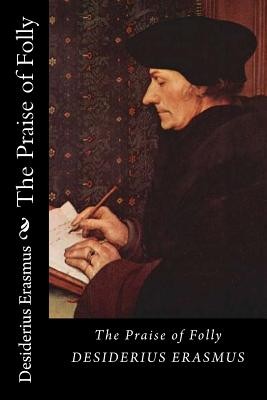
- We will send in 10–14 business days.
- Author: Desiderius Erasmus
- Publisher: CreateSpace Independent Publishing Platform
- ISBN-10: 172594698X
- ISBN-13: 9781725946989
- Format: 15.2 x 22.9 x 0.5 cm, minkšti viršeliai
- Language: English
- SAVE -10% with code: EXTRA
Reviews
Description
In Praise of Folly starts off with a satirical learned encomium, in which Folly praises herself, after the manner of the Greek satirist Lucian, whose work Erasmus and Sir Thomas More had recently translated into Latin, a piece of virtuoso foolery; it then takes a darker tone in a series of orations, as Folly praises self-deception and madness and moves to a satirical examination of pious but superstitious abuses of Catholic doctrine and corrupt practices in parts of the Roman Catholic Church-to which Erasmus was ever faithful-and the folly of pedants. Erasmus had recently returned disappointed from Rome, where he had turned down offers of advancement in the curia, and Folly increasingly takes on Erasmus' own chastising voice. The essay ends with a straightforward statement of Christian ideals. "No Man is wise at all Times, or is without his blind Side."
- Author: Desiderius Erasmus
- Publisher: CreateSpace Independent Publishing Platform
- ISBN-10: 172594698X
- ISBN-13: 9781725946989
- Format: 15.2 x 22.9 x 0.5 cm, minkšti viršeliai
- Language: English English
In Praise of Folly starts off with a satirical learned encomium, in which Folly praises herself, after the manner of the Greek satirist Lucian, whose work Erasmus and Sir Thomas More had recently translated into Latin, a piece of virtuoso foolery; it then takes a darker tone in a series of orations, as Folly praises self-deception and madness and moves to a satirical examination of pious but superstitious abuses of Catholic doctrine and corrupt practices in parts of the Roman Catholic Church-to which Erasmus was ever faithful-and the folly of pedants. Erasmus had recently returned disappointed from Rome, where he had turned down offers of advancement in the curia, and Folly increasingly takes on Erasmus' own chastising voice. The essay ends with a straightforward statement of Christian ideals. "No Man is wise at all Times, or is without his blind Side."


Reviews